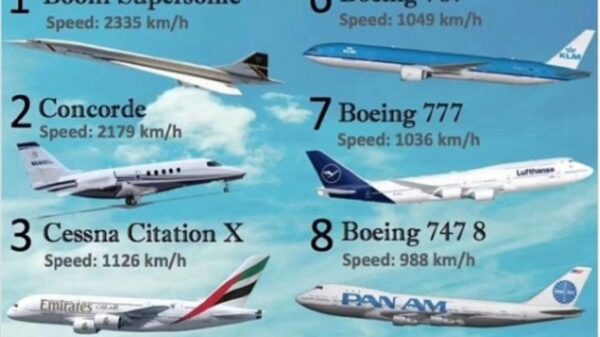Exploring Nigeria’s infrastructure mirage
An estimate of 15 airports, collectively costing N301 billion, failed to meet the required passenger traffic. Clearly, this is a manifestation of Nigeria’s concrete democracy, a construct that lacks a clear purpose or a long-term vision.
A Misallocation of Resources
These airports, built by various state governments since 1999, struggle to attract substantial passenger traffic, with some catering to only a handful of travelers, primarily government officials. The burden of maintaining these underperforming facilities falls on the National Civil Aviation Authority putting a strain on federal resources. Despite the label of “cargo” or “international” airports, their practical utility remains severely limited.
The Illusion of Progress
In a nation heavily reliant on imports, the low functionality of these airports reflects the broader economic challenges faced by the country. The focus on concrete infrastructure, divorced from sustainable revenue generation, exemplifies a misplaced emphasis on visible achievements rather than long-term economic growth.
Implications of Concrete Democracy
The allure of visible progress often overshadows the need for more substantive development initiatives, perpetuating a cycle of superficial achievements. The obsession with monumental projects for the sake of political mileage neglects essential sectors like education, healthcare, and urban development.
The Inherent Flaws
The emphasis on grandiosity in public projects often facilitates corrupt practices, with budget allocations and contracting processes serving as potential avenues for embezzlement. This prioritization of personal gain over public welfare perpetuates a system where public funds are channeled into self-serving endeavors.
Many of these infrastructure projects primarily serve the interests of public officials, reinforcing the disconnect between the projects and the needs of the general populace. As a result, these airports remain inaccessible to the majority of the population, serving only the narrow interests of the political elite.
Concrete Democracy Unveiled
The concept of concrete democracy materializes through the construction of infrastructure such as bridges, flyovers, and airports across Nigeria. These projects, although visually impressive, contribute minimally to the country’s overall productivity, resulting in unsustainable developments that strain federal resources.
A Closer Look at Underperforming Airports
Since 1999, state governments in Nigeria, including Ogun, Bayelsa, Osun, Delta, Ebonyi, Akwa Ibom, Ekiti, Anambra, Abia, Yobe, Nasarawa, Kebbi, Edo, Gombe, and Jigawa, have struggled with underperforming airports. These facilities, despite being labeled as “cargo” or “international,” fail to attract sufficient traffic to justify their substantial construction costs.
The Burden on National Resources
According to Captain Musa Nuhu, Director-General of the National Civil Aviation Authority, these state-owned airports place a significant financial burden on the Federal Airports Authority of Nigeria (FAAN). With some airports catering to only a handful of passengers monthly, sustaining these facilities remains a daunting challenge for FAAN.
Unveiling Nigeria’s Economic Realities
In a country heavily reliant on imports and with a predominant political industry, it comes as no surprise that these airports struggle to serve a meaningful purpose. The prevalent delays and underutilization further underscore the stark realities of Nigeria’s economic landscape.
The Illusion of Progress
The allure of tangible infrastructure serves as a tool for garnering political mileage, often overshadowing the need for sustainable development and human capital investments. This tendency has led to the proliferation of ‘vanity projects’ that lack substantial value in the long run.
Flawed Priorities and Mismanagement
The budgeting and execution processes of these infrastructure projects often facilitate financial misappropriation, leading to a vicious cycle of squandered resources. The focus on grandiose displays of power and influence detracts from crucial investments in education, healthcare, and other vital sectors.
Paving the Way for Change
It is imperative for Nigeria to shift its focus from concrete achievements to meaningful development initiatives that benefit a broader society. A national perspective must prevail over individual state agendas to ensure the efficient use of resources and promote sustainable progress.
A Call for Reorientation
It is imperative for Nigeria to shift its focus from tangible but unsustainable projects to initiatives that foster genuine socio-economic development. Without a reevaluation of priorities and a demand for meaningful, well-planned projects, the country risks further resource waste and stagnation.
The journey towards a more effective and impactful democracy in Nigeria demands a departure from the allure of superficial progress and an embrace of sustainable, holistic development strategies.










